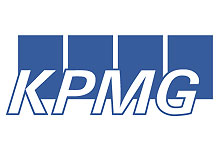 KPMG, one of the global “Big Four” accounting giants, has acknowledged guilt in criminal tax frauds, by providing sham tax shelters to wealthy clients between 1996 and 2002. This was announced by the US Justice Department on 29 August, together with a fine imposed on KPMG of US$456 million (US$100 million for failing to disclose tax shelters on tax filings, as required by law, which cost the US at least US$2.5 billion in tax revenues; US$128 million for illegally earning US$115 million in fees; and US$228 million to be paid to the US Internal Revenue Service (IRS) for US$2.5 billion in loss of taxes due to illegal activities).
KPMG, one of the global “Big Four” accounting giants, has acknowledged guilt in criminal tax frauds, by providing sham tax shelters to wealthy clients between 1996 and 2002. This was announced by the US Justice Department on 29 August, together with a fine imposed on KPMG of US$456 million (US$100 million for failing to disclose tax shelters on tax filings, as required by law, which cost the US at least US$2.5 billion in tax revenues; US$128 million for illegally earning US$115 million in fees; and US$228 million to be paid to the US Internal Revenue Service (IRS) for US$2.5 billion in loss of taxes due to illegal activities).
This follows the collapse of one of the “Big Five”, Arthur Andersen in 2002. The auditing industry is in crisis, yet it has never been more secure. An oddly disturbing place to be, since many required reforms are no longer URGENT, although they remain IMPORTANT, and will thus probably be put on hold for too long.
Sarbannes-Oxley, the over-reactive law put in place in the USA but affecting companies all over the world, is an issue. Experts agree that had this law been in place before Enron (the collapse of which sparked the law into being), it would probably not have stopped the collapse anyway. It may have changed the nature of the collapse – but it is impossible to legislate against human greed and guile, and the Enron crowd would have found easy ways around Sarbannes-Oxley. The problem is that S-O adds a serious amount of costs to any audit that needs to be done. It additionally requires that auditors be changed (“rotated”) regularly.
In actual fact, industry insiders knew for sure that KPMG would not be taken to the edge, as Arthur Andersen was. The USA has to have at least four big auditing firms to physically comply with S-O. If KPMG had gone, then the prospect of nationalising the entire industry would have been a real possibility.
Another issue is that the wrong people pay for audits. The people with the most incentive to cook the books are the people who pay for the audits, and often hold audit partners to ransom (“sign the report or you won’t have the audit next year” is not unusual). A friend of mine once made an interesting suggestion: why not require all listed companies around the world to take out insurance for the shareholders against fraud and bad accounting. The level of insurance required would be linked to turnover, profit, operations and share price. The insurance company would need to assess the risk involved in order to set an insurance premium, and would then employ auditors to do just that. Different levels of audit would then also raise or lower risk, thereby raising or lowering the premium. The insurance company pays for the audit out of their premium fees. That way, the risk is put in the right place – and management have no direct influence over audit reports.
Just a thought….
My prediction is that this industry will continue to muddle along for another decade at least, until the next high profile collapse and failure (remember the Boomers are all coming up to retirement and the incentive to cook the books will be huge for some of them), and only then will a wholesale overhaul take place. When it does, remember that you heard it here first.


